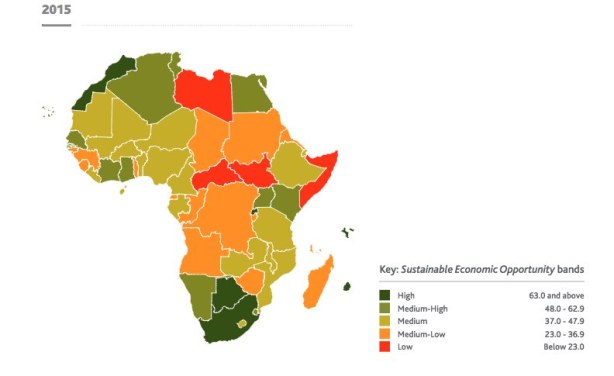The government last evening, however, said torture of any kind by anyone is “unacceptable” and substantiated allegations will be investigated and perpetrators punished.
“The position of government is clear, the President was clear in his [August 2021] speech and the laws against torture are clear; that, it’s unacceptable,” Attorney General Kiryowa Kiwanuka said.
A lady in Uganda being abducted during daylight in the streets of Kampala by non uniformed military police.
In August 2021, President Museveni rebuked security operatives accused of brutalising civilians and criminal suspects, warning that extracting information by force and through inflicting pain is defective interrogation, and untenable.
“Nobody should be in the uniform of the army when he does not respect the interests of [Ugandans],” President Museveni said then, adding, “When you respect the people of Uganda, you must observe the following: do not bark at people, do not beat the people … and even do not beat criminals, and not even the children.”
Warning
That was five months ago, and a repetition of a warning in his May 15, 2017 letter to security and intelligence chiefs headlined “concerning torture”.
In the correspondence addressed to the then chief of defence forces, the inspector general of police and the director general of intelligence services, Mr Museveni, a retired general and commander-in-chief of the armed forces, wrote:
“It is, therefore, clear that torture in order to extract confessions (okutatsya) has three possible mistakes that may even interfere with the fight against crime. Number one, you may torture the wrong person, somebody who is totally innocent. This is very unfair. Secondly, somebody may admit guilt when he is innocent in order to be spared being tortured. This will make the real criminal escape in order to commit more crimes later. Thirdly, confessions by the criminals are not necessary…”
With a four-year lapse between the two letters, and five months after the last one, little suggests security operatives have heeded their Commander-in-Chief’s clarion call to end torture and it is unclear if any of the perpetrator has been prosecuted.
According to Dr Livingstone Ssewanyana, a human rights activist and executive director of a civil society organisation, Foundation for Human Rights Initiative, there is no deliberate action being taken by government to curb the vice and it is bound to keep rising.
“This shows the culture of impunity, lack of concrete action on the part of the state and an attempt to subdue the popular will. The President isn’t particularly losing control, but this can be largely attributed to individuals who are very close to centres of power that they have [morphed] into untouchables. They know even if they commit these crimes, no action will be taken against them,” Dr Ssewanyana said by telephone last evening.
He added: “As long as there is no deliberate action by the State and relevant authorities to root out such individuals, this will just keep increasing.”
In the latest narratives of such ordeals, including by satirical novelist Kakwenza Rukirabashaija, victims reveal unmitigated brutality meted on suspects abducted and bundled into unmarked cars at gunpoint.
Some are still being held incommunicado at ungazetted detention facilities, two victims including Mr Rukirabasahaija said.
In an interview with our sister NTV-Uganda television on Sunday, he said his tormentors repeatedly struck his ankles while forcing him to dance uninterrupted on the painfully failing feet.
He was lashed as a game and his tormentors gloated, Mr Rukirabashaija noted, revealing he dreaded most when his flesh was sporadically torn off with pliers. One of his nails was also partially removed.
“I was dancing with swollen feet, but you have nothing to do. [If] you stop dancing, they beat you [until] you collapse. [Still], they beat you…,” he said.
No security agency has publicly disputed the veracity of the rendered harrowing tales, and none has claimed responsibility.
The accounts came to light days after well-wishers propped a limping Mr Samuel Masereka, the Kasese National Unity Platform (NUP) party coordinator, to a press conference at the party headquarters in Kamwokya, Kampala, on January 31.
Mr Masererka, anchored feebly on swollen legs with festering wounds, said while in detention, he was electrocuted, his genitals squeezed and hit with a stick, and boiled water was poured on his body parts targeted to be whipped.
Each subsequent day, he said, his tormentors returned to step in the wounds with heavy army boots, leading to more bleeding during his 34-day ordeal from December 7, 2021.
Both Mr Masereka and Mr Rukirabashaija have publicly displayed torture marks on their bodies, including a maze of lines on the back that appeared to be whip marks.
Asked about the new revelations and why it appears President Museveni’s stop-the-torture directive is being ignored, Ms Lindah Nabusayi, the senior presidential spokesperson, said:
“The President stated that the use of torture is unnecessary and wrong. All security agencies know that evidence through torture is inadmissible and unreliable in court. Security personnel who go against this [order] will be held personally liable and face consequences of the law.”
Article 24 of the Constitution and Section 3(1) of the Prohibition and Prevention of Torture Act, 2012, forbid any form of torture, cruel, inhumane or degrading treatment or punishment, with the amended subsidiary law imposing personal liability on perpetrators.
Security agencies have in the past said errant officers involved in torture of civilians do so as individuals because brutalising citizens is not an official policy in UPDF, police and spy outfits.
Mr Rukirabashaija said about 20 men, many without uniform and all without name tags, and aboard the dreaded Drone vehicles, broke into his house and grabbed him before blindfolding him and taking him to a place he vaguely recognised like a barracks.
Investigations by this newspaper show that the December 28, 2021 arrest of Rukirabashaija was commanded by D/ASP Benjamin Manigaruhanga and the detective in his ‘statement of arresting officer’ noted that the novelist was taken to the Special Investigations Division “Kireka detention facility for procession”.
It was unclear where he was allegedly beaten. By Rukirabashaija’s own account, when pressure mounted, the army brought in a doctor who gave him an injection six-hourly to speed up drying of the wounds before he could be produced in court and, days later, driven home in an unmarked vehicle following his dramatic rearrest as he walked out of Kitalya Prison to freedom.
The accounts of repeat injections echo a similar experience that opposition leader Robert Kyagulanyi, alias Bobi Wine, relived after he was freed from Makindye Military Barracks where he was incarcerated following his brutal arrest, and alleged torture, during the last day of campaigns of the bloody August 2018 Arua Municipality parliamentary by-election.
When the politician broke loose and in 2019 declared his interest to run for President, onboarding NUP as the political vehicle for that objective, security suddenly began targeting and arresting his supporters before, during and after the January 2021 elections.
The abductions became so widespread that President Museveni was forced to address the nation on television and he disclosed then that 53 of the missing persons were in the custody of the elite Special Forces Command then commanded by his son, Lt Gen Muhoozi Kainerugaba, now the commander of UPDF Land Forces.
Other than the commander-in-chief’s revelation, no security outfit then, as now, accepted responsibility for the excesses of armed personnel.
In the end, some of the missing persons were dumped at various places including swamps and told to keep silent if they wished to avoid re-arrest while those that broke the deal named the Chieftaincy of Military Intelligence which, until last month was headed by Maj Gen Abel Kandiho, as the lead perpetrator.
Sanctions
The United States in early December 2021 sanctioned Maj Gen Kandiho alongside 14 military and political officers in Syria and Yemen and his crime, according to Washington, included superintending an organisation whose officers illegally held incommunicado and tortured critics and political opponents of President Museveni’s government.
He denied the charges and a month later, President Museveni removed him from the CMI post and reassigned him as a guarantor of the South Sudan peace process and he took up the new office yesterday.
The rebelling legislators spurned Deputy Speaker Anita Among’s plea for them to await a government statement on the alleged widespread torture expected today, with Mr Mpuuga vowing that they will abscond House proceedings for a fortnight as a show of displeasure with the state of torture in the country.
Both Rukirabashaija and NUP’s Masereka have separately each singled out CMI as one of the detention places where they were tortured repeatedly.
This newspaper could not independently confirm the allegations because military installations, including the CMI cells in Kampala’s Mbuya outskirt, are off-limits to civilians.
In response to our inquiry about the claims against the army’s investigative arm, CMI, deputy UPDF Spokesman, Lt Col Ronald Kakunguru, asked the complainants to lodge their complaints formally in order to aid investigations.
“Torture is a crime, if anybody is claiming they have been tortured, they should report to police. It will be investigated and if indeed culprits are found, they will be subjected to the full force of the law,” he said.
He added: “Let them come to us and report because now we have nowhere to start from and we regard these as rumours because they [alleged victims] are not providing us with relevant information.”
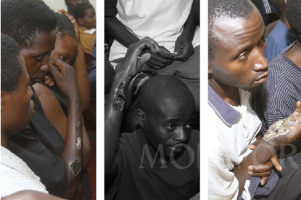
Some of the suspects who were arrested after the Kasese killings display their wounds in the Jinja Magistrate’s Court on December 14, 2016. The suspects say they were tortured by security. PHOTO/ ABUBAKER LUBOWA
It remained unclear if either Rukirabashaija or Masererka, both of whose torture marks bore semblance to that displayed by Kasese kingdom loyalists in court way back in 2016, have filed specific cases with police, although Mr Rukirabashaija showed his wounds in court during his trial.
Yesterday, the Buganda Road court rejected the novelist’s application to repossess his passport so that he could travel to receive an award in Germany as well as go for better medical care abroad. According to Chief Magistrate, Dr Douglas Singiza, Rukirabashaija can receive the accolade virtually while his medical condition can be handled in Uganda.
The satirical novelist is accused of using his social media accounts to make abusive and derogatory statements that allegedly belittled both President Museveni and First Son Kainerugaba. He denies the offensive communication charges.
Meanwhile during the January 31 press conference at NUP headquarters in Kampala, Mr Masereka said he was questioned about plans of the party as well as who bankroll its activities as his tormentors tortured him.
Attorney General Kiwanuka told this newspaper by telephone that torture is “unacceptable” and that every such claim will be investigated thoroughly on its merit, and the perpetrators prosecuted in line with the law, as a way to root out the indiscretion.
No State organ has taken responsibility, with both police and prisons saying their officers do not torture.
Mr Frank Baine, the spokesman of Uganda Prison Service, which Mr Rukirabashaija praised upon his release, said “people aren’t tortured in prisons, we receive them the way they are, record what we find, do medical reports and book them”.
Asked who the torturers are, Mr Baine said: “Ugandans know the answer, anyone who is Ugandan knows the answer to that question. I don’t need to say more.”
Similarly, the new police deputy Spokesperson, Ms Claire Nabakka, said torture victims should file cases with the law enforcement agency instead of media gimmicks.
Most operations resulting in arrests, and alleged torture of suspects, she said, are conducted “jointly” by sister security agencies and “I can’t speak for [security and intelligence] every organ”.
Under the Uganda Constitution and Police Act, the core roles of the Force include maintaining law and order, protecting life and property and detecting and preventing crime. The law allows police to take proactive action when its officers suspect a crime, not excluding torture, is being committed or likely to be committed.
Police inquiries are mainly led by the Criminal Investigations Directorate (CID) whose Spokesman, Mr Charles Twine, yesterday said that they have “zero tolerance for torture and that is why we have opened a general inquiry file”.
“If the victim comes forward, it is our obligation to investigate thoroughly … Medical examinations are done on victims and they are very important because the findings determine the charges to be levied against the suspects. So, I encourage the victims of torture to come forward,” he said.
In the 3rd Periodic Review of Uganda during the universal periodic review in Geneva, Switzerland, which ended this month, member states pointed out the deteriorating state of human rights in Uganda.
Some of the recommendations made about Uganda included the need to support the Uganda Human Rights Commission to curb torture and harassment of human rights activists and the need to abolish the death penalty in Uganda.
Rising concern about rights violations in Uganda gained renewed currency following the emergence on social media of full body torture marks of Rukirabashaija and Masereka, drawing condemnation from Uganda Law Society (ULS), rights activists, development partners and clergy.
“I am here to report that, unfortunately, some people are not listening, we have seen torture and it’s really destroying the name of this country with the few achievements that we are making. It’s also a humble request to you that you shall send a stern message of discipline, that we shall see some action on the [errant] officers that are meting these heinous acts on the citizens,” ULS President Pheona Wall told President Museveni during the opening of the New Law year last Friday.
In a statement issued yesterday, the European Delegation in Uganda, and embassies of its ten member states represented in Uganda, warned against increasing acts of torture by security forces, holding of citizens incommunicado, enforced disappearances and urged quick remedial measures.
“The EU delegation fully shares the concern of many Ugandan stakeholders over a situation that for more than a year has seen a significant increase of reports of torture, arbitrary arrests, enforced disappearances, harassment as well as attacks against human rights defenders, members of the opposition and environmental rights activists,” the statement read in part.
The bloc added: “The arbitrary arrest of people by security services, holding them in ungazetted places of detention for prolonged periods of time, torturing them, not bringing them before a court within the mandatory time limits, are violations of Uganda’s national legislation, regional and international commitments as well as specific presidential guidelines.”
Earlier, the United States Mission in Kampala on the weekend condemned the ongoing reported tortures cases and asked the government to hold the perpetrators accountable.
“Recurring credible accounts of forced disappearance, arbitrary detention and use of physical and mental torture of Ugandan citizens by the security forces reflect poorly on the government and undermine the constitution, which under article 24 states ‘no person shall be subjected to any form of torture, cruel inhuman or degrading treatment of punishment’,” the US embassy noted.
Issue...Recent torture cases
• July 2021: Five of the Edward Katumba suspected attackers were arraigned before the Nakawa Chief Magistrate’s Court with visible torture wounds all over their body parts including buttocks, back, legs and arms. They attributed the torture marks to the beatings by security during their detention.
• July 2020: The commandant of the police’s infamous Special Investigations Unit (SIU), D/SCP Elly Womanya, along with five other senior police officers, were summoned by court to answer to charges of allegedly torturing Mityana Municipality Member of Parliament Francis Zaake.
• August 2021: Court ordered government to compensate MP Zaake Shs75m after he proved that he was tortured during a brutal arrest by security for distributing food to his constituents during the lockdown.
• January 2021: The High Court in Kampala awarded Shs40m as compensation to a journalist who was battered while covering Kifeesi criminal gang leader, Paddy Sserunjogi, alias Sobbi, in 2018.
European Union reacts- Statement on torture and human rights violations in Uganda
The Delegation of the European Union issues the following statement together with the
diplomatic missions of Austria, Belgium, Denmark, France, Germany, Ireland, Italy, the
Netherlands and Sweden in Uganda.

A man displays his wounds in court in the Jinja Magistrate’s Court on December 14, 2016. PHOTO/FILE
During the recently concluded Universal Periodic Review (UPR), the Uganda Human
Rights Commission and several other stakeholders pointed out the persistence in Uganda
of torture. They also expressed concern for other human right violations in Uganda such
as the excessive use of force by the police, violations to freedom of expression and the
media, including harassment, threats, illegal detentions and violence against journalists
and human rights defenders.
The EU Delegation fully shares the concern of many Ugandan stakeholders over a
situation that for more than a year has seen a significant increase of reports of torture,
arbitrary arrests, enforced disappearances, harassment as well as attacks against human
rights defenders, members of the opposition and environmental rights activists.
The arbitrary arrest of people by security services, holding them in ungazetted places of
detention for prolonged periods of time, torturing them, not bringing them before a court
within the mandatory time limits, are violations of Uganda’s national legislation, regional
and international commitments as well as specific Presidential guidelines.
While we note the actions already taken against some perpetrators of human rights
violations amongst security forces, the relevant Ugandan authorities should urgently
ensure a comprehensive investigation into all the reported abuses, including the events of
18th and 19th of November 2020. Those who are being held incommunicado should be
immediately released or brought before justice and those who violate the laws of Uganda
should be held accountable and personally liable for their actions.
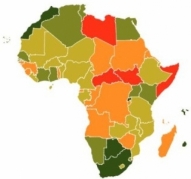


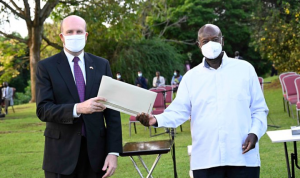
 The happy African President of Southern Sudan, Mr Salva Kiir Mayardit who has taken the mantle of leadership as the new chairperson of the East African Community (EAC).
The happy African President of Southern Sudan, Mr Salva Kiir Mayardit who has taken the mantle of leadership as the new chairperson of the East African Community (EAC). Gen Katumba Wamala and Dr Maggie Kigozi at an earlier scouts event
Gen Katumba Wamala and Dr Maggie Kigozi at an earlier scouts event






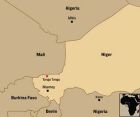



















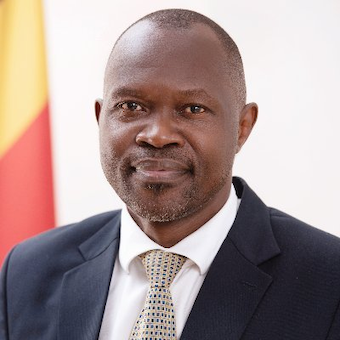 The executive director of the Uganda National Bureau of Standards (UNBS), David Livingstone Ebiru
The executive director of the Uganda National Bureau of Standards (UNBS), David Livingstone Ebiru



















































